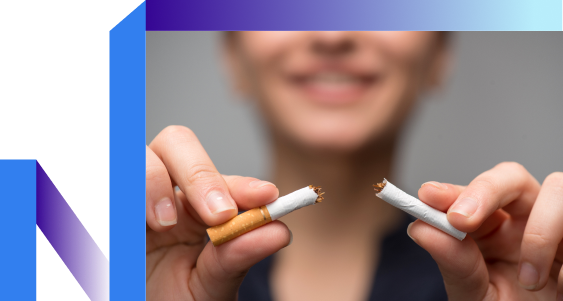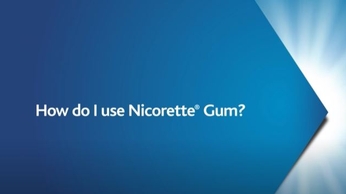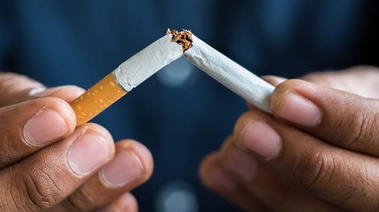Quit Smoking Timeline: Benefits of Quitting Smoking Timeline
So you’ve decided to kick the habit and finally quit smoking. Heck, yeah! You’re on your way to a healthier, happier, better body — and an even better lifestyle. Even if you’ve smoked for years, quitting now can reverse many of the harmful effects that cigarettes have caused to your body. The effects of quitting smoking are profound and numbered, but you should know up front: this journey isn’t always easy. There may be cravings and withdrawals, and while those things can be bothersome to deal with, the benefits of quitting smoking start only 20 minutes after putting your last cigarette down.1
That’s right — 20 minutes, and it only improves from there! Read our quit-smoking timeline for some more surprising and interesting things that can start to happen to your body as soon as you make the decision to leave smoking behind for good.
What Happens to Your Body When You Quit Smoking
20 Minutes After
According to the American Cancer Society, just 20 minutes after putting down your last cigarette, your heart rate and blood pressure drop to healthier levels.1
In the early stages of stopping smoking, it’s important to create a robust quit smoking plan. The first week of quitting may be tough, but being prepared beforehand will decrease your chance of relapsing.
8-12 Hours After
Twelve hours after quitting, the carbon monoxide level in your blood will be back down to normal.1
After 2 Days
Your sense of taste and smell may be beginning to improve at this point, so treat yourself to something delicious, or go buy yourself a nice candle or perfume to celebrate.1
Symptoms of nicotine withdrawal may start to peak the first couple of days after quitting and may last a few weeks. Help distract yourself by taking yourself (or going with friends or loved ones) to a smoke-free activity. Use Nicorette Gum or Nicorette’s Coated Ice Mint Lozenges to help with craving relief and address the oral fixation (the FDA recommends nicotine gum as a treatment to help you kick cigarettes to the curb).1 Treat yourself to a relaxing splurge like a massage — you’ve taken a huge healthy step in the right direction, and you deserve a little pampering. Especially if it keeps you on track!
2 Weeks
As soon as after a short two weeks, your circulation and lung function begin to improve. The process begins at the two-week mark and continues to improve beyond three months.3 Daily activities will start to become easier.
You may find that certain places or occasions can bring up an urge to smoke, even after your withdrawal symptoms have ended. Being aware of these situations and creating a plan to avoid your urge to smoke can help keep you on track.2
After 1 Month
You’ll start to feel an uptick in overall energy one to nine months after quitting. Your lung function will continue to improve, which will increase circulation as well.4 If smoking left you feeling fatigued and short of breath, this may start to turn around at the one-month mark. Additionally, the little fibers in your lungs’ bronchial tubes begin to regrow at this one month milestone, which may help your body clean your lungs and reduce infection.3 Symptoms like coughing and shortness of breath become less frequent.4
After 6 Months
Your “smokers cough” should become less of a daily issue after six, cigarette-free months. You’ve overcome a massive hurdle — half a year! — so be sure to celebrate this impressive milestone.
After 1 Year
Your risk of heart disease is now half of what it was a year ago, and the risk of having a heart attack has also dramatically dropped.1 With a healthier heart and healthier lungs, you may notice that not only does everyday life feel easier but you’re crushing it in the gym and in your workouts, too.
Keeping a strong support system throughout your journey is important! Consider Quit.com, a website full of insight and information to help you stay strong, as well as a customizable email program that provides support for every step of the way.
After 5 Years
Around five years of the stop smoking timeline, your risk of stroke greatly reduces.3 Your risk of developing smoking-related diseases also begins to decrease at this point. This includes the risk of developing cancer of the mouth, throat, and esophagus.3
After 10 Years
Your lung cancer death rate is about half that of a smoker once you’ve gone a decade without smoking.3 Your precancerous cells have been replaced by healthy cells and your lungs continue to heal. Your risk of developing bladder, kidney, and pancreas cancer decreases after 10 years.3
After 15 Years
Your risk of coronary heart disease is close to that of a nonsmoker’s.3 This major milestone marks a significant point in your stop smoking timeline.
After 20 Years
Quitting smoking for two decades is an admirable achievement that comes with even more health benefits. Your risk of cancer of the mouth and throat drops to near that of someone who does not smoke.3 Pancreatic cancer risks also drops to close to that of non-smokers, while the added risk of cervical cancer drops by about half.3 The damage to your body caused by smoking isn’t limited to just your lungs. However, it’s possible to reverse the damage once you quit.
These major milestones show the many benefits of quitting. You can quit today and start seeing health improvements within minutes. Once you create your plan to stop smoking and finally quit cigarettes, make sure to celebrate each milestone along the way. To learn how to stop smoking, read more articles from Nicorette.












